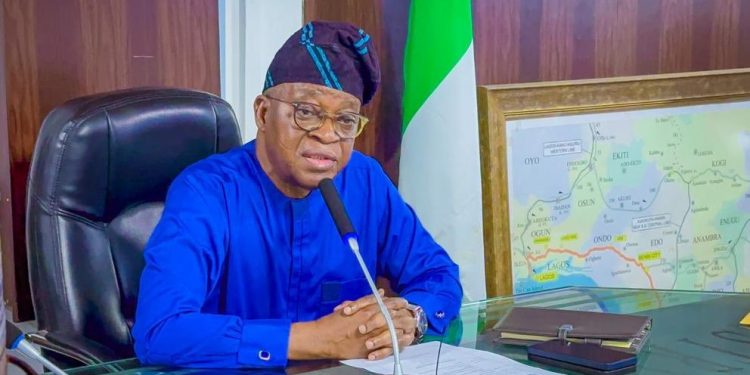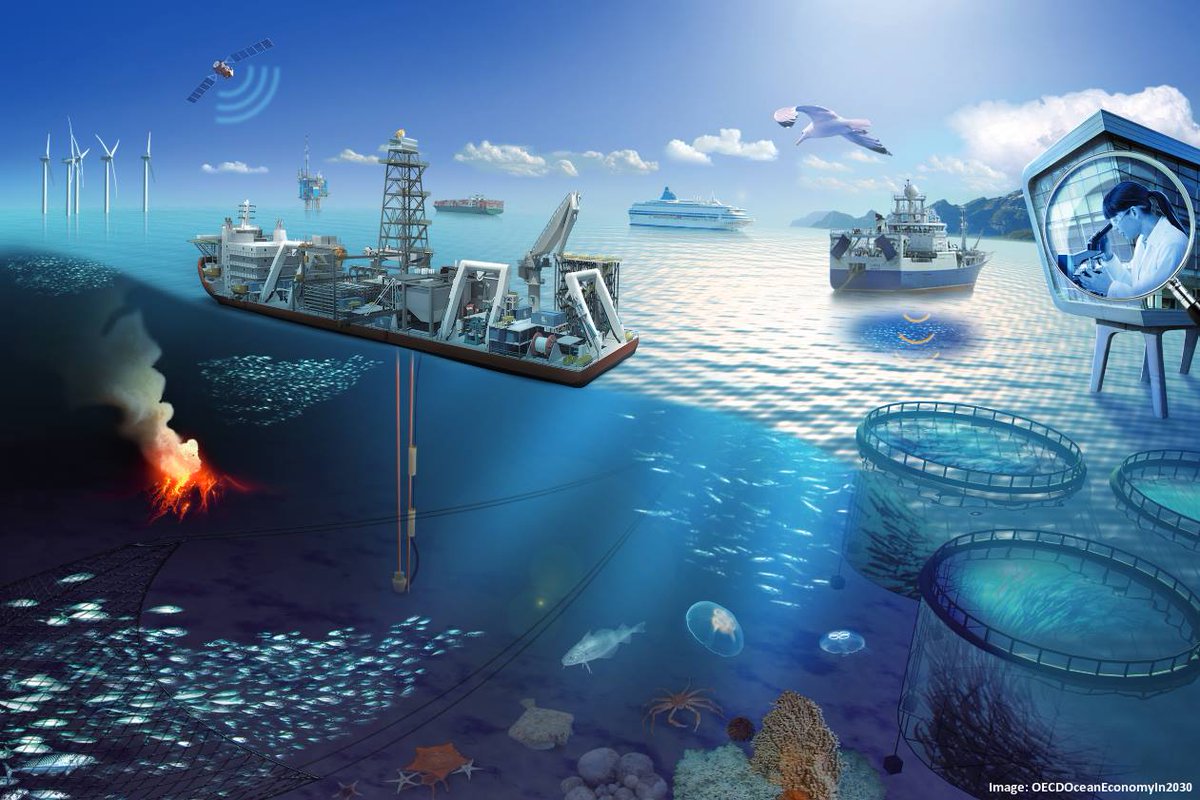The Federal Government has launched a National Marine and Blue Economy Policy designed to reposition the maritime sector as a key driver of economic growth, reduce logistics costs, and attract new investment into shipping and port infrastructure.
Minister of Marine and Blue Economy, Adegboyega Oyetola, announced the policy at the 2025 Summit of the Transport Correspondents Association of Nigeria (TCAN) in Lagos, themed “Driving the Transport Logistics Value Chain for Economic Growth.” He described it as a comprehensive framework to modernise port logistics, expand inland water transport, and align Nigeria’s maritime operations with global standards.
“This new policy is a deliberate step to make our maritime sector globally competitive. It will guide both government and private investment, cut the cost of doing business, and support environmentally responsible growth,” Oyetola said.
He linked the policy to ongoing reforms such as the Lagos-Ibadan rail connection to Apapa Port, the revival of barge operations, reconstruction of the Apapa-Oshodi Expressway, and the commissioning of the Lekki Port Access Road. Nigeria’s heavy reliance on road haulage for port operations, he said, has overstretched infrastructure, driven up costs, and slowed efficiency.
“With this policy, we will unlock the full potential of our waterways, integrate them with rail and road, and ensure Nigeria becomes a hub for regional and international trade,” he added.
Oyetola also outlined plans to position Nigeria as West and Central Africa’s preferred maritime hub by deepening intermodal reforms. Strengthening rail connectivity with ports, he said, will ease cargo evacuation, cut demurrage charges, reduce pressure on highways, and encourage transshipment activities that will attract more global shipping lines.
Minister of Transport, Senator Said Alkali, reinforced the policy direction, stating that rail development will serve as the backbone of the logistics chain. He highlighted the Lagos-Kano standard gauge and the Port Harcourt-Maiduguri rehabilitation as key priorities, and disclosed that the Kano-Maradi line will reach Katsina by December 2025 and be completed in March 2027. Alkali also revealed Federal Executive Council approval for a National Land Transport Policy and the construction of six new modern bus terminals across the country.
“The days when cargo depended solely on trucks are gone. Our goal is to make rail the spine of logistics, with roads and waterways serving as complementary arteries,” he said.
Chairman of TCAN, Tola Adenubi, stressed the role of the media in holding stakeholders accountable to ensure the new policy does not become another unimplemented plan. “We have had good policies before, but poor implementation has been the bane of the sector. This time, we want to see visible results that ease costs and create jobs,” he said.
During a panel session, experts called for intermodal synergy and greater private sector involvement. Barge operators raised concerns about limited access to financing despite the Cabotage Vessel Financing Fund, truckers pushed for a national truckers’ policy and designated rest parks, while waterways stakeholders demanded safety infrastructure such as navigational lights and marine police checkpoints.
The Lagos State Waterways Authority also announced it has begun piloting electric-powered ferries with support from the European Union, describing it as a significant move toward green transport.
Speakers agreed that the new Marine and Blue Economy Policy, supported by expanded rail infrastructure and increased private sector financing, could drive broader economic efficiency. However, they emphasised that real transformation will depend on harmonising policies across transport modes, closing infrastructure gaps, and ensuring that investments translate into job creation and lower costs for Nigerians.










